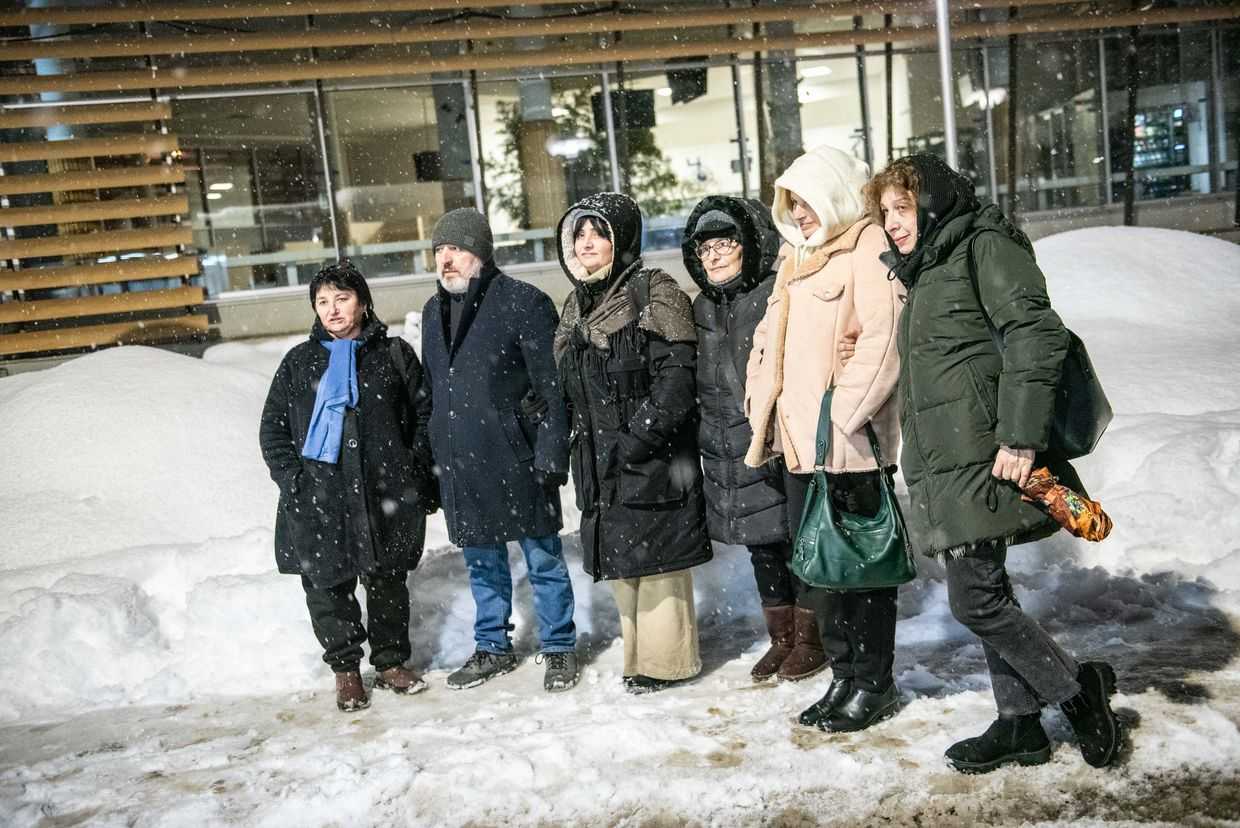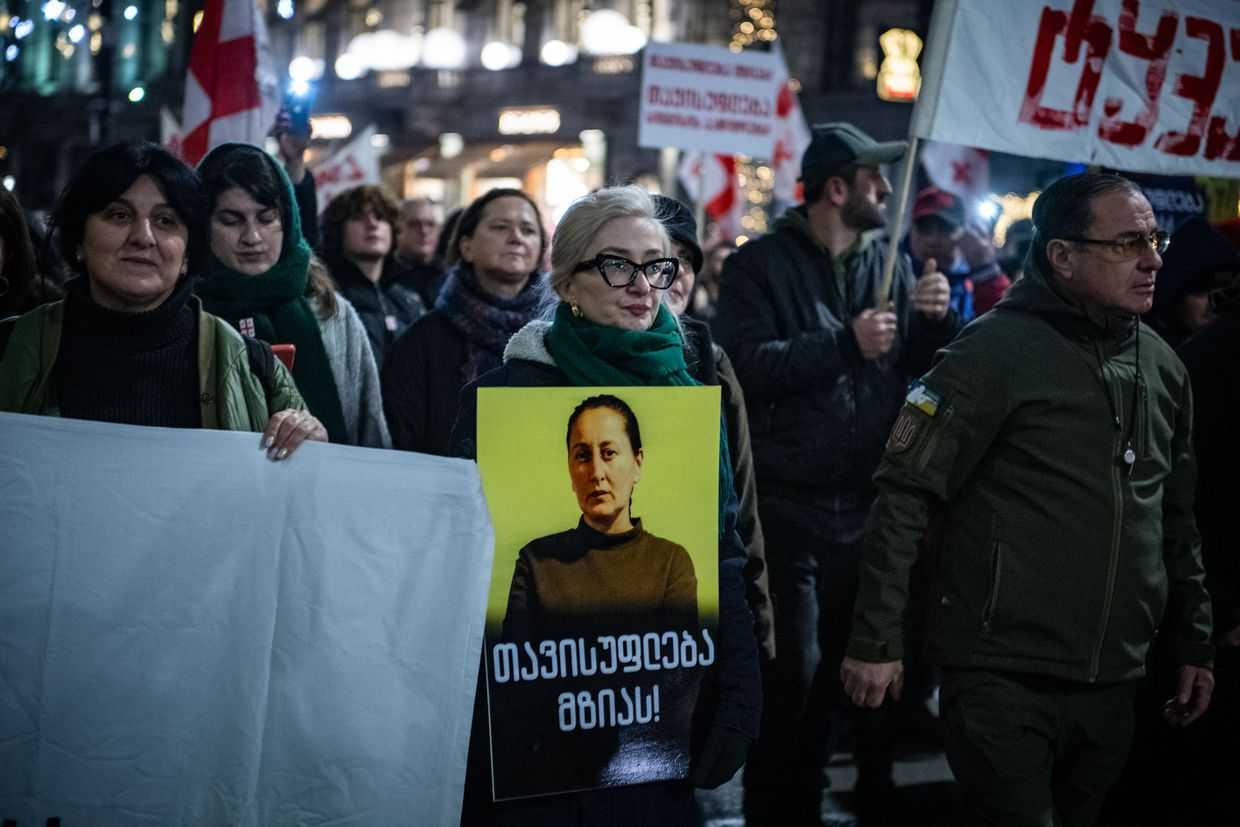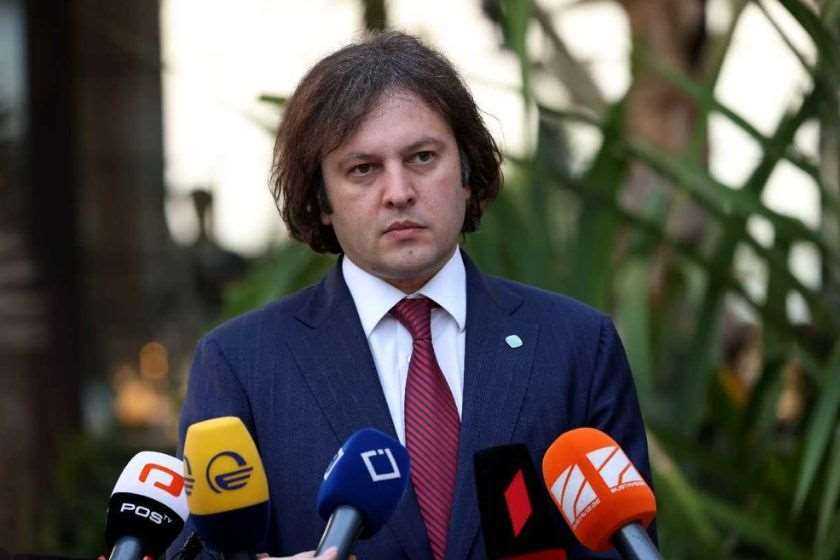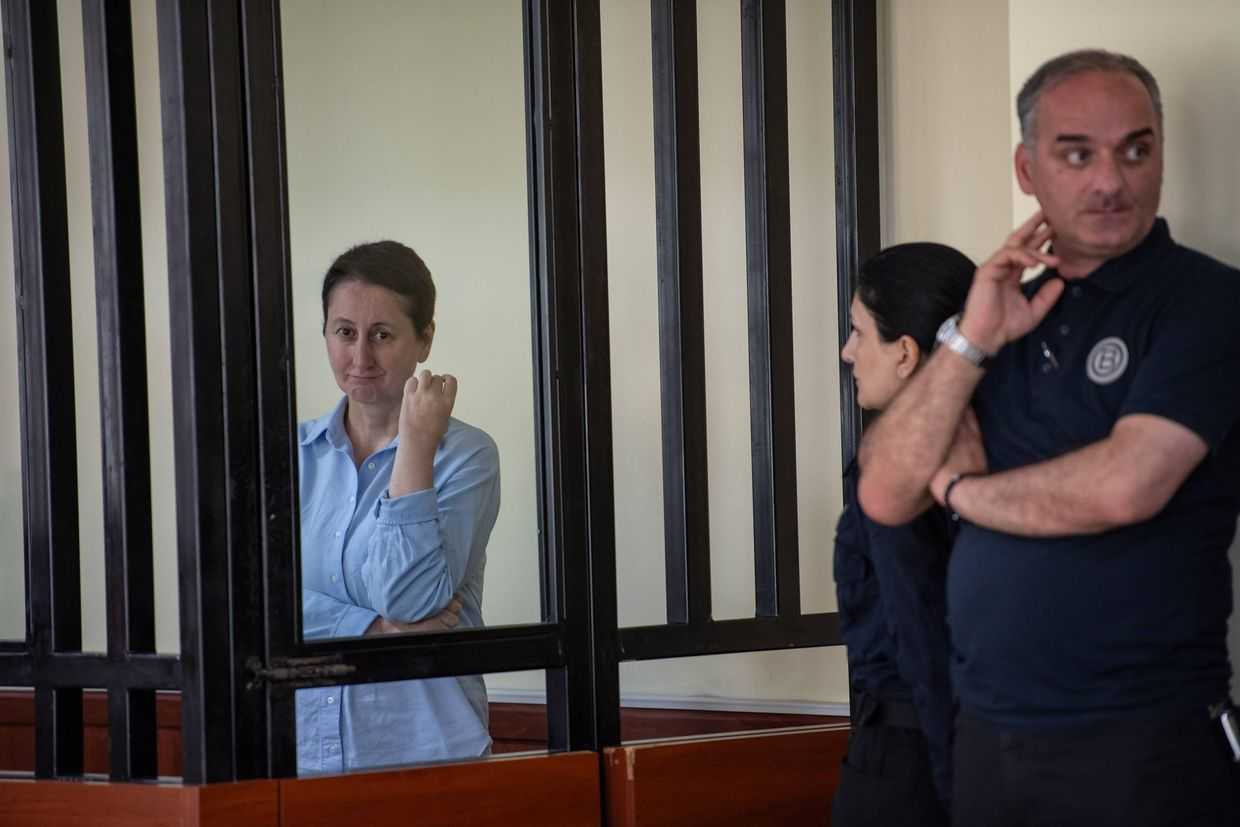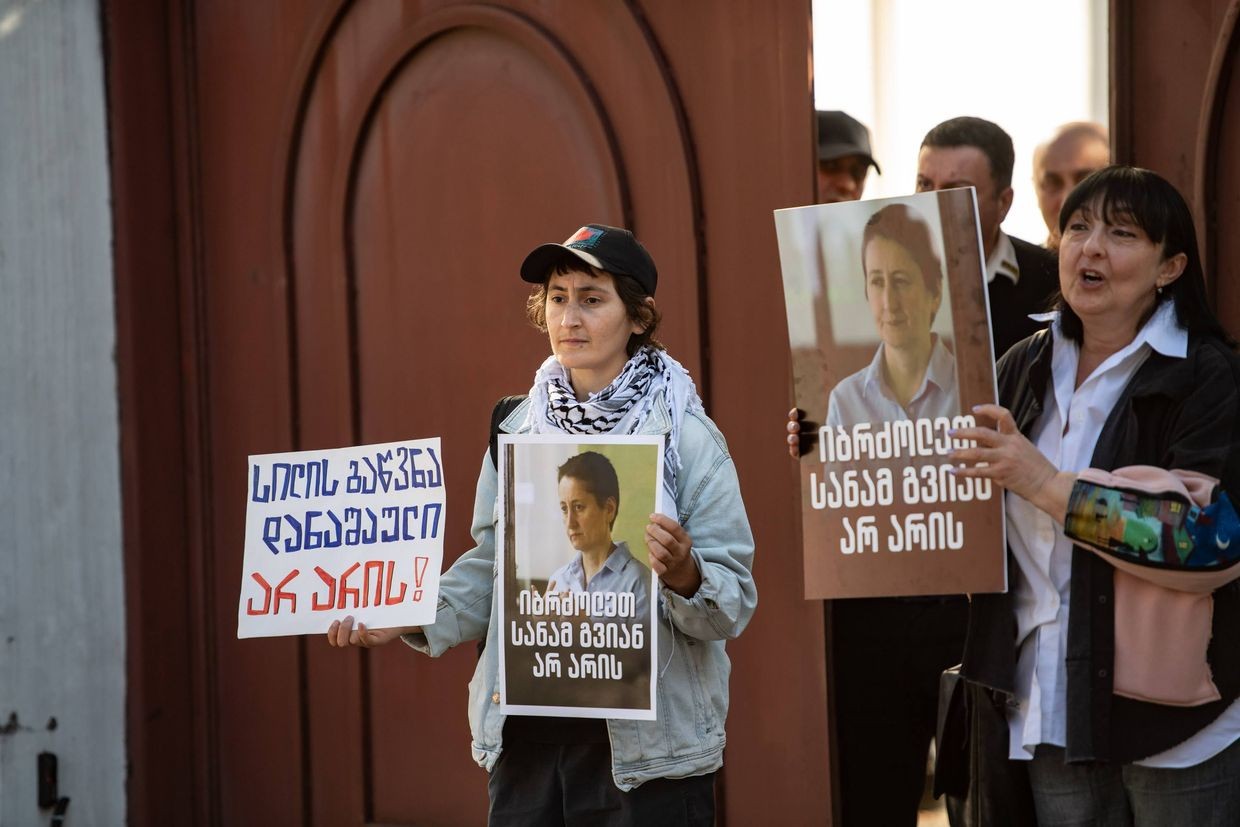
The Kutaisi Court of Appeals has upheld a lower court decision to sentence journalist Mzia Amaghlobeli to two years in prison. Amaghlobeli, the founder of independent news sites Batumelebi and Netgazeti, was originally sentenced in August for slapping the then-Chief of Police of Batumi during a heated exchange amidst an anti-government demonstration.
The hearings, which began on 11 November, concluded on Tuesday evening. It was held in a small courtroom which fit around 20 people, leaving many of Amaghlobeli’s colleagues and supporters unable to attend the hearing.
In parallel with the final hearing was a protest in support of Amaghlobeli, which took place outside the court. Protesters yelled various supportive messages and chants via megaphone, which could be heard from inside the courtroom.
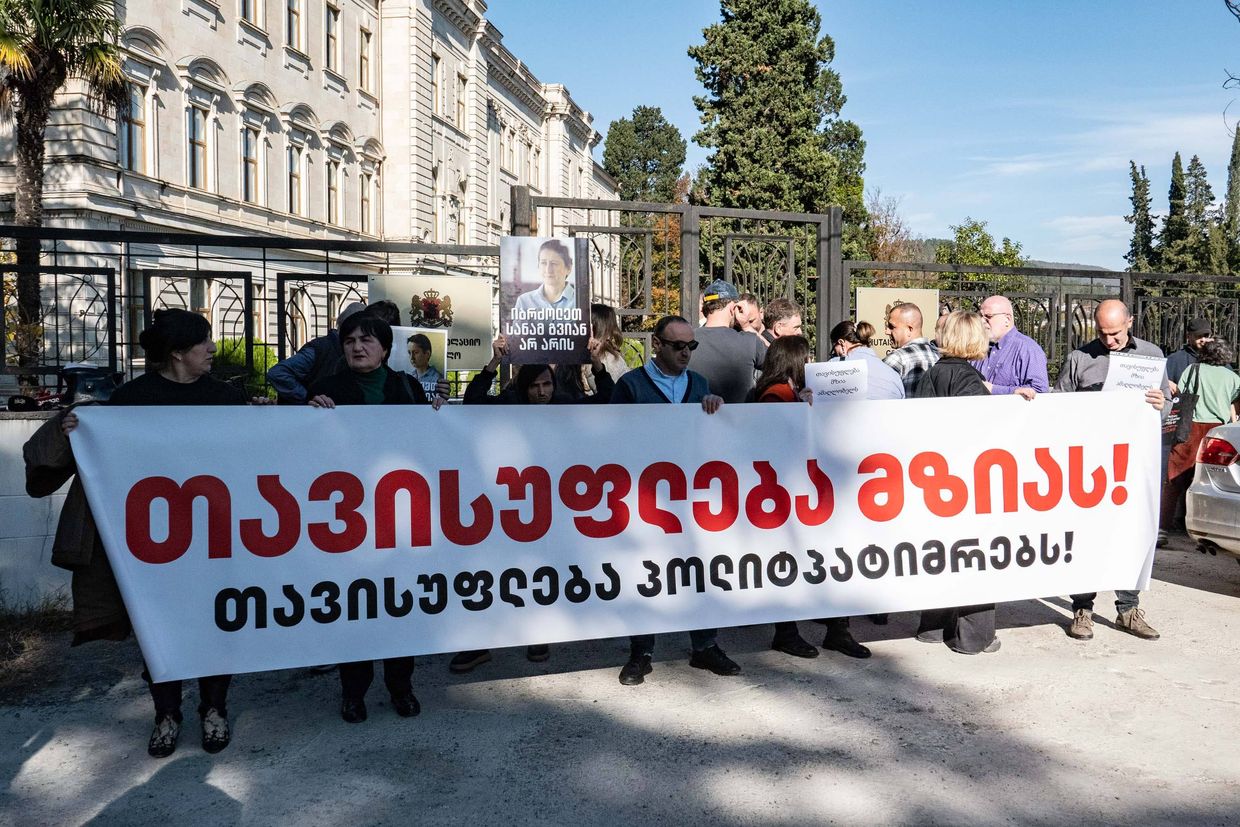
The hearing lasted about seven hours. As a sign of protest, Amaghlobeli never sat down during the session, continuing a tradition from her previous trials.
During the court sessions, Amaghlobeli’s defence team requested that the court add documentation related to her international awards and medical records to her case files, as well as return her personal belongings and mobile phone.
Among the many awards Amaghlobeli has received after being imprisoned is the Sakharov Prize for Freedom of Thought. She shared this prize, awarded in October, with the Belarusian journalist and activist Andrzej Poczobut.
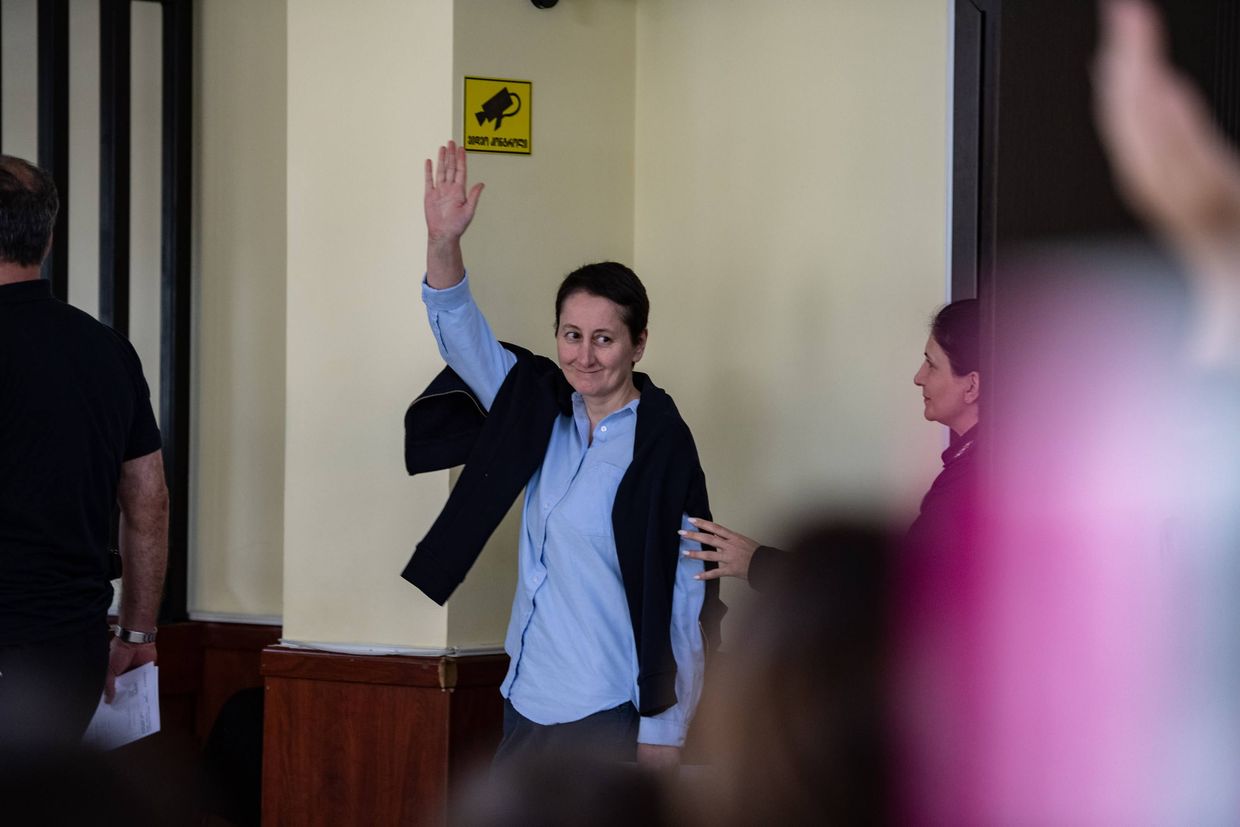
The appeals panel — made up of Judges Marina Siradze, Nana Jokhadze, and Nikoloz Margvelashvili — partially granted the motion, agreeing to all but the release of her mobile phone, citing ‘an ongoing investigation’.
The defence also requested access to the academic qualifications of Judge Nino Sakhelashvili, who had issued the original sentence, questioning whether she was indeed eligible to serve in her position. The appeals panel denied this request.
‘In reality, we are considering the case of the infringed dignity of [then-Batumi Chief of Police] Irakli Dgebuadze and the police as a whole — this case has nothing to do with the criminal law. In reality, behind this insult we are dealing with whitewashing crimes they [the police] have committed. They could not punish themselves, and this is why this case came to be, which has already sacrificed one year of Mzia’s [life] and her sight’, Amaghlobeli’s lawyer Maia Mtsariashvili said in her concluding speech, which lasted for around five hours.
According to her lawyers, Amaglobeli’s eyesight, which was poor before the arrest, deteriorated during her imprisonment. She has completely lost sight in one eye and has 10% vision left in her other eye. As a result, earlier in November, her lawyers appealed to the penitentiary service to grant Amaghlobeli the status of a person with a disability.
During her concluding remarks ahead of the ruling, Amaghlobeli told the court that the speech they heard from her defence team was ‘the voice of truth’, one that would become an ‘example of a fight’ for many.
She then went on to say that she did not want to emphasise the length of her sentence, as there were already too many repressive laws in Georgia.
‘Let's say, if you release me today, I think there's a possibility of me being detained on the way home, because of the new laws. You may go to prison for wearing a medical facemask’.
‘It is not the prison sentence that scares me — what scares me is what I will find outside once I am released’, Amaghlobeli continued.
‘Will I find a country fighting for freedom or a country conquered without tanks?’, she questioned.
‘For us, for everyone in this courtroom, dignity lies in defending the Georgian constitution. Therefore, I call on all of you to fight before it is too late, because we have an obligation to defend the constitution’.
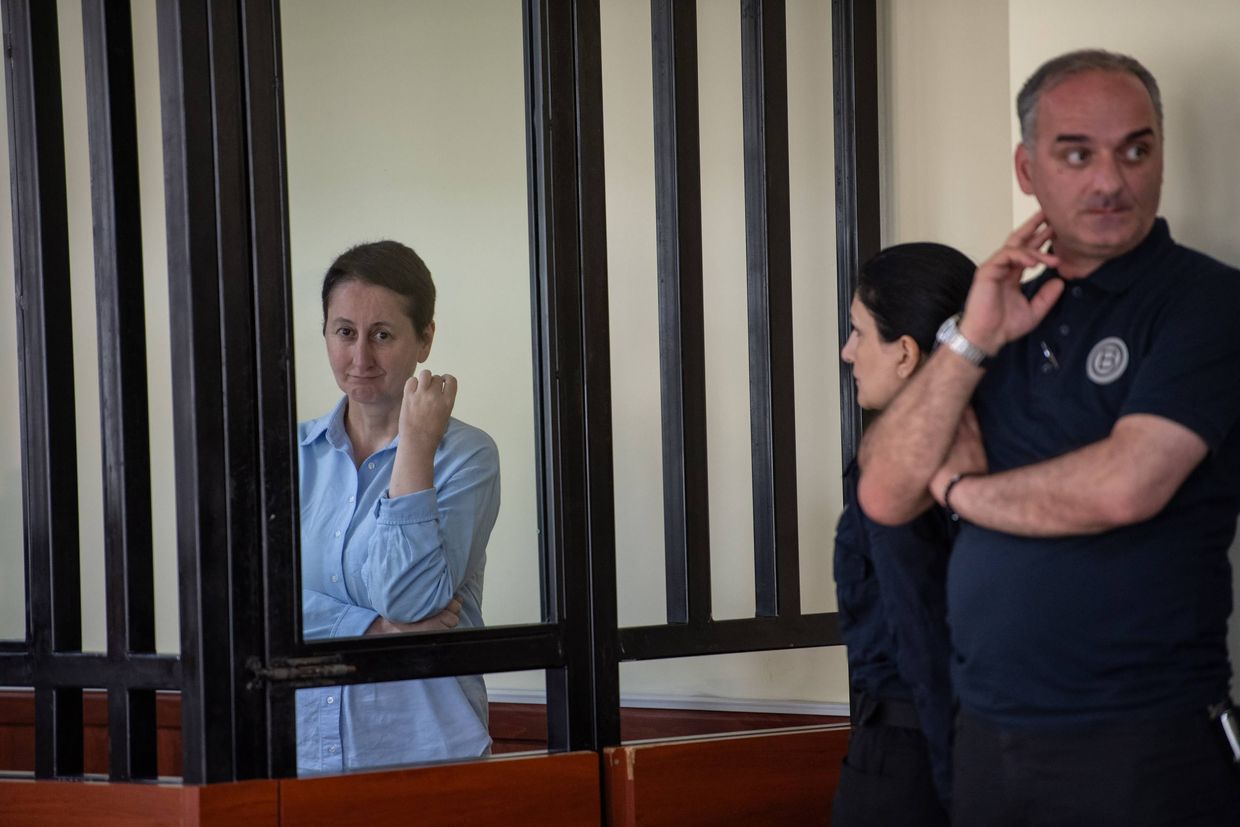
After the hearing ended, Amaghlobeli’s lawyer Mtsariashvili said upon leaving the courthouse that ‘there is no justice in this building’.
Amaghlobeli was first detained at night on 11 January after putting a sticker calling for a nationwide strike on a fence outside a police station in Batumi. She had done so in protest against the detention of her colleague, Tsiala Katamidze, for putting up the same sticker on the same street.
Shortly after being released, she was again arrested after slapping Batumi Police Chief Irakli Dgebuadze during a heated exchange outside the police station.
Throughout the original court proceedings, Amaghlobeli spoke about the circumstances leading up to the incident, including degrading treatment by the police, as well as the abuse she faced following her arrest after slapping the officer. This included being spat in the face by Dgebuadze, subjected to verbal abuse, and being denied access to a toilet.
Amaghlobeli’s case has been widely condemned by critics both in Georgia and abroad as politically motivated, linked to her work as a media personality.
Critics also pointed to the video of Amaghlobeli’s arrest following the slapping incident as early evidence that her punishment was premeditated — the footage showed Dgebuadze insulting and threatening her.
Following the arrest, Georgian Dream officials — including Prime Minister Irakli Kobakhidze — promoted the theory that Amaghlobeli was acting on prior instructions as part of a plan to discredit the Georgian police.
In May, Amaghlobeli’s lawyers announced they would sue Kobakhidze for defamation over those claims.





